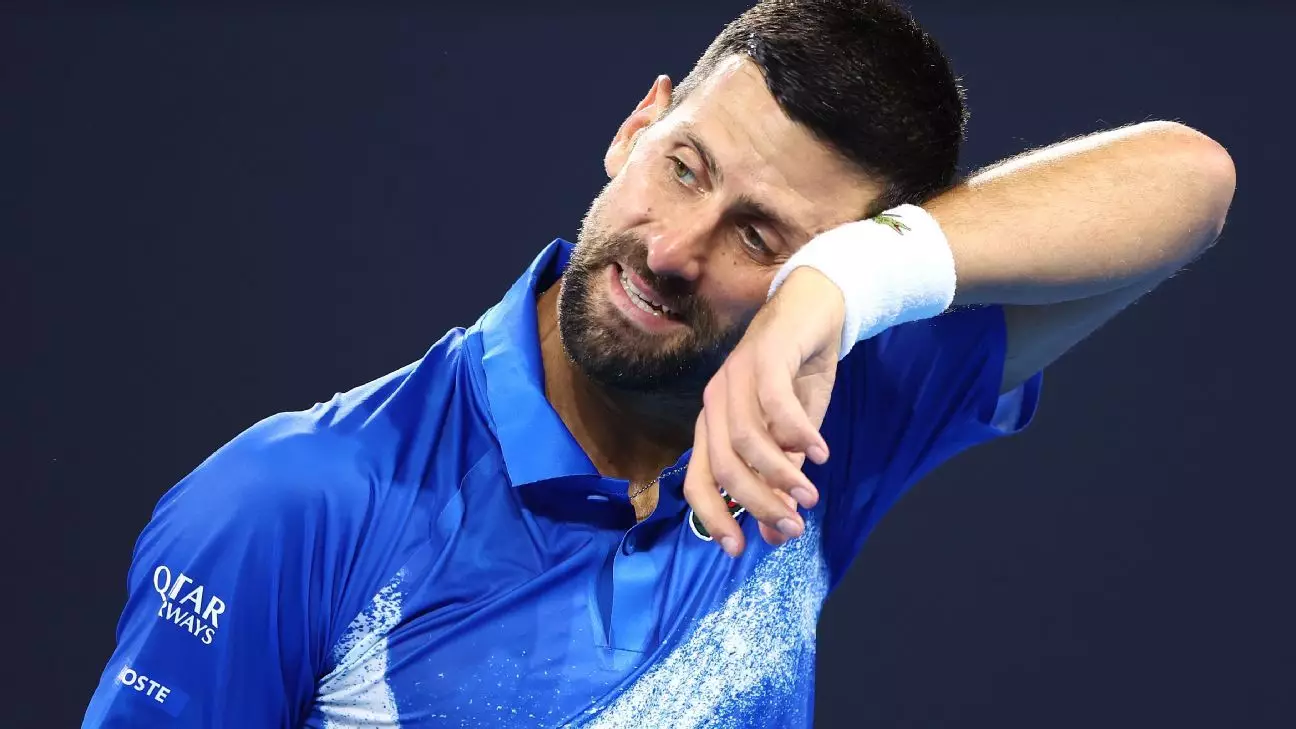In a candid revelation, tennis legend Novak Djokovic has opened up about the emotional turmoil he faces each time he returns to Melbourne. This feeling stems from a harrowing episode that unfolded three years prior when he was unexpectedly deported due to violations regarding Australia’s COVID-19 vaccination regulations. His decision to remain unvaccinated against COVID-19 not only barred him from defending his title at the Australian Open in 2022 but also triggered a deeply unsettling legal battle that ultimately resulted in his visa being revoked just as the tournament was set to begin. In that year, the spotlight shifted to Rafael Nadal, who seized the opportunity to clinch the championship title instead.
Despite emerging victorious at the Australian Open the following year, Djokovic’s sentiment towards his arrivals in Australia is laden with anxiety. He vividly describes the psychological distress he experiences at passport control, where echoes of his past detention linger. This unease manifests as a frisson of fear whenever he passes through immigration. “I had a bit of trauma from three years ago,” Djokovic disclosed to the *Herald Sun* in Melbourne, indicating that he is haunted by the specter of being detained again. The act of simply presenting his passport is fraught with tension as he nervously assesses the reactions of the officials.
Djokovic’s admission of such feelings is significant, as it highlights the enduring impact of traumatic experiences even in the face of subsequent success. One may assume that a high-profile victory would erase the pain, but the psychological consequences of his deportation saga seem to remain deeply ingrained. The uncertainty associated with immigration procedures serves as a constant reminder of a turbulent chapter in his career, suggesting that mental scars can sometimes last longer than physical ones.
Yet, Djokovic’s perspective on his experiences is not completely overshadowed by negativity. He acknowledges the emotion surrounding his subsequent win after returning to Australia, stating, “I don’t hold a grudge.” The presence of his family and team during that triumphant moment contributed to making it one of the most memorable victories of his career, underscoring his resilience. It’s evident that while he has not completely escaped the dark shadows of his past, he has managed to turn the page in what could be characterized as a journey of healing.
As the 2024 Australian Open approaches, set to commence on January 12, Djokovic stands on the precipice of another opportunity. With a record 10 titles at the tournament, his history in Melbourne is steeped in achievement, yet the emotional baggage he carries complicates that narrative. As he prepares to compete again, it remains to be seen how these past experiences will influence him on the court. Djokovic’s story serves as a poignant reminder of the complexities of mental health in elite sports—a reminder that success can coexist with deep-seated emotional challenges. In the realm of athletics, mental fortitude is as crucial as physical prowess, making Djokovic’s journey an exemplary illustration of resilience in overcoming adversity.


Leave a Reply